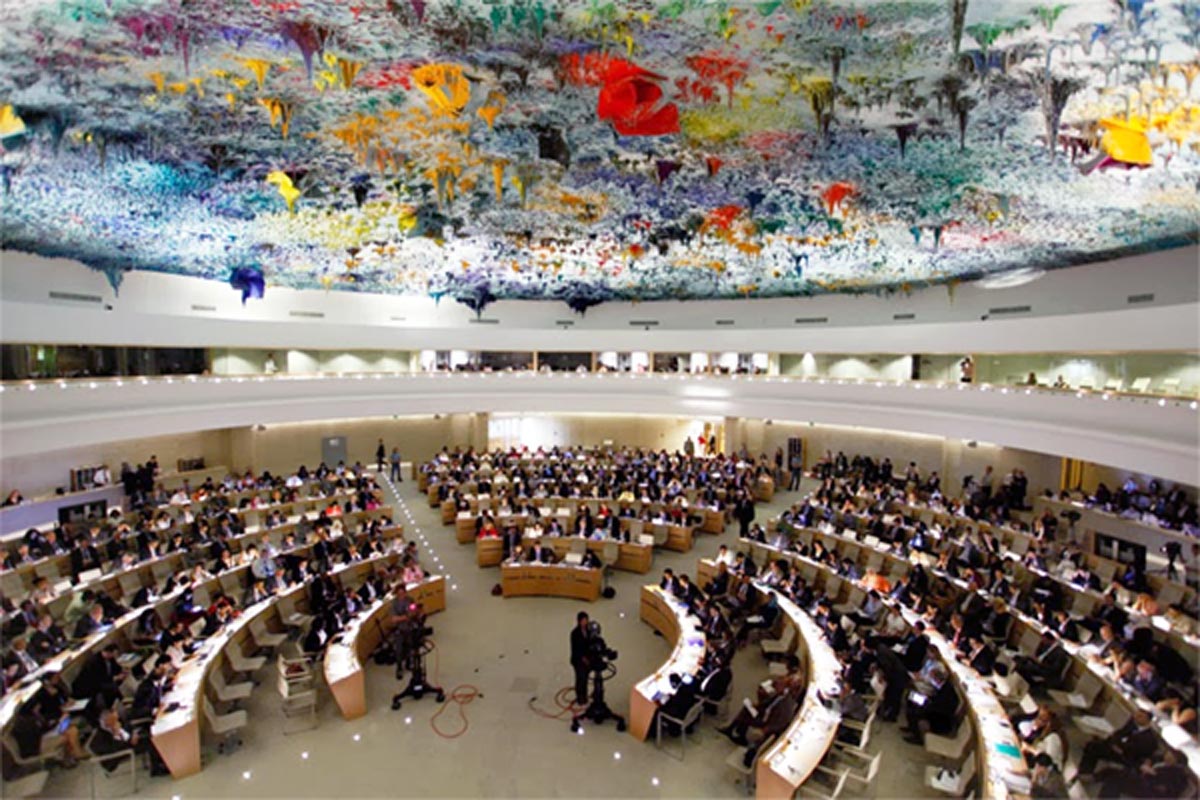UN Secretary General ban Ki-Moon has raised few selected issues of reprisals against Sri Lankan human rights defenders for their cooperation with the United Nations and its its representatives and mechanisms, in his annual report to the UNHRC 27th session.
Cooperation with the United Nations, its representatives and mechanisms in the field of human rights
Report of the Secretary-General
-
12. Sri Lanka
1. At the end of her visit to Sri Lanka in August 2013, the United Nations High Commissioner for Human Rights expressed concern at allegations of harassment and intimidation against a number of individuals linked with her visit and urged the Government of Sri Lanka to issue immediate orders to end that treatment. In her report to the Human Rights Council at its twenty-fifth session, to which the Government submitted an extensive reply, the High Commissioner indicated that reports continued to be received of widespread harassment and intimidation targeting human rights defenders, activists, lawyers and journalists for having cooperated with the High Commissioner and her office during her visit to the country. At the same session, the Council adopted resolution 25/1 on promoting reconciliation, accountability and human rights in Sri Lanka, in which it expressed serious concern at the continuing reports of reprisals.
1. On 10 February 2014, allegations of intimidation and reprisals, including death threats, were raised concerning members of the National Fisheries Solidarity Movement, including in connection with the visit of the High Commissioner. On 7 March 2013, Jude Besil Sosai Anthirai was prevented from travelling to Colombo to the United Nations compound, where he wished to submit a petition. On 22 August 2013, Sanja Sandanadas was questioned at her home by officers from the Criminal Investigation Department about her work and told not to organize any event during the visit of the High Commissioner. On 3 September 2013, Selvakumar Krishnapillai was questioned several times by two men about a petition presented to the High Commissioner; two days later he was asked to report to the Ministry of Defence. At the time of finalization of the present report, no reply had been received from the Government to a joint communication sent by several special procedures mandate holders.
2. On 21 March 2014, a group of special procedures mandate holders sent a joint communication regarding allegations that, on 6 March 2014, in its English news bulletin, the State-controlled Sri Lanka Rupavahini (TV) Corporation accused 24 civil society organizations of having issued a joint civil society memorandum to the Human Rights Council and the international community, while broadcasting the full names and images of the leaders of nine of those organizations and the names of affiliated civil society organizations. In the same bulletin, the Corporation allegedly also accused the mentioned organizations of having submitted false information to the international community to discredit the country, claimed that their memorandum would damage the peace and reconciliation prevailing in the country among various ethnic groups and regions and stated that it was common among NGOs to exaggerate information about the situation in Sri Lanka in order to receive funding. At the time of finalization of the present report, no reply had been received from the Government.
3. Visuvalingam Kirupaharan, General Secretary of the Tamil Centre for Human Rights, was reportedly threatened during the twenty-fifth session of the Human Rights Council. On 21 March 2014, Mr. Kirupaharan participated in a side event on human rights in Sri Lanka, organized by the International Buddhist Foundation. After the event, a journalist, reportedly from the Sri Lankan newspaper Divaina, approached Mr. Kirupaharan, stating that he could not return to Sri Lanka and that he would face consequences if he did so. The journalist allegedly told Mr. Kirupaharan that photographs of him at the Council would be published in newspapers in Sri Lanka. At the time of finalization of this report, no reply had been received from the Government to a joint communication sent on 27 March 2014 by three special procedures mandate holders.
Read the full report here; A/HRC/27/38 at OHCHR
